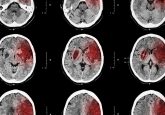Knowns and unknowns of identifications management of depressed brain tumor patients

Malignant brain tumors (BT) are often devastating diseases associated with short life expectancy and progressive impairment of functional status and quality of life. Depression is a highly prevalent complication among patients with established BT diagnosis, with reported point-prevalence rates approaching 50% [1]. A constantly increasing body of evidence suggests that depression is related to significant impairment of health-related quality of life [2], worse treatment outcomes [3] and shorter survival [4] of BT patients. Furthermore, depressed patients are at risk for adverse health behaviors and impaired compliance with treatment recommendations [5]. From a clinical perspective, early recognition of depressed BT patients...




